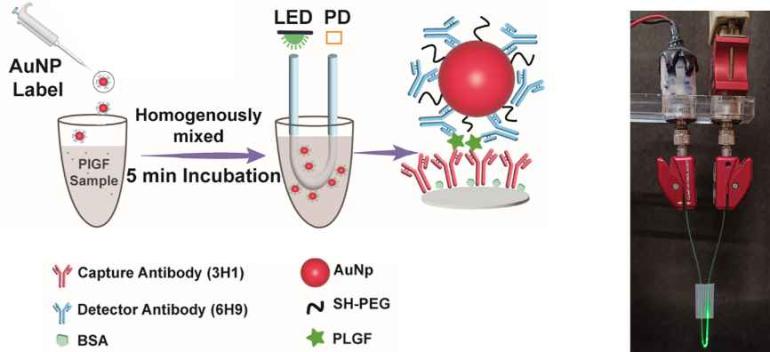
Design and Development of Plasmonic Fiber Optic Biosensor for Pre-eclampsia Biomarker PIGF detection
Date12th Oct 2023
Time03:00 PM
Venue Online meeting link: https://meet.google.com/puz-awhc-bca
PAST EVENT
Details
Pre-eclampsia (PE) is a life-threatening complication that occurs during the third trimester of pregnancy, affecting a large number of pregnant women and newborns globally. Rapid, on-site, and affordable diagnosis of PE at an early stage is necessary to ensure timely treatment and minimize maternal and neonatal morbidity and mortality rates. Currently, available methods for determining risk include maternal blood pressure measurement, monitoring the level of protein present in the urine, and performing blood tests to detect damage to maternal organs. These techniques' effectiveness in assessing a woman's risk for spontaneous delivery is poor. Placental growth factor (PIGF) has been confirmed as a potential PE biomarker for precise diagnosis. Quidel Triage is a commercially available PIGF-based test in limited countries and is costly. Here, we propose a novel surface modification strategy using poly(amidoamine) (PAMAM) dendrimers to immobilize the bioreceptor on the U-bent polymeric optical fiber (POF) sensor probe surface to overcome the chemical inertness of PMMA as an alternative to hexamethylene diamine (HMDA) require acid or base pre-treatment strategies. In this work, a mouse-anti-PIGF bioreceptor was immobilized on the G-4 PAMAM-coated U-bent POF probe to realize a plasmonic sandwich assay with gold nanoparticles (AuNP) tagged mouse anti-PIGF conjugates. The PIGF biomarker was quantified in terms of light absorption propagating through the LED and measured using a photodetector. The high performance of the plasmonic fiber optic absorbance biosensor (P-FAB) platform using 40 nm AuNP conjugates is reflected in the measurement of PIGF in just 30 minutes. The limit of detection (LoD) was found to be 0.19 pg/mL and 0.35 pg/mL in PBS buffer and 10% diluted human serum, respectively. The P-FAB is paving the way for cost-effective technology for PIGF detection and its potential for pre-eclampsia diagnosis.
Speakers
Mr. Ratan Kumar Chaudhary (AM19D013)
Department of Applied Mechanics and Biomedical Engineering

